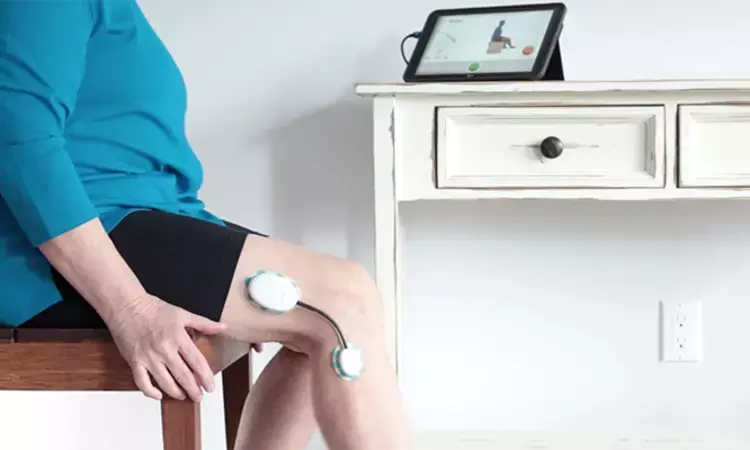- Home
- Medical news & Guidelines
- Anesthesiology
- Cardiology and CTVS
- Critical Care
- Dentistry
- Dermatology
- Diabetes and Endocrinology
- ENT
- Gastroenterology
- Medicine
- Nephrology
- Neurology
- Obstretics-Gynaecology
- Oncology
- Ophthalmology
- Orthopaedics
- Pediatrics-Neonatology
- Psychiatry
- Pulmonology
- Radiology
- Surgery
- Urology
- Laboratory Medicine
- Diet
- Nursing
- Paramedical
- Physiotherapy
- Health news
- Fact Check
- Bone Health Fact Check
- Brain Health Fact Check
- Cancer Related Fact Check
- Child Care Fact Check
- Dental and oral health fact check
- Diabetes and metabolic health fact check
- Diet and Nutrition Fact Check
- Eye and ENT Care Fact Check
- Fitness fact check
- Gut health fact check
- Heart health fact check
- Kidney health fact check
- Medical education fact check
- Men's health fact check
- Respiratory fact check
- Skin and hair care fact check
- Vaccine and Immunization fact check
- Women's health fact check
- AYUSH
- State News
- Andaman and Nicobar Islands
- Andhra Pradesh
- Arunachal Pradesh
- Assam
- Bihar
- Chandigarh
- Chattisgarh
- Dadra and Nagar Haveli
- Daman and Diu
- Delhi
- Goa
- Gujarat
- Haryana
- Himachal Pradesh
- Jammu & Kashmir
- Jharkhand
- Karnataka
- Kerala
- Ladakh
- Lakshadweep
- Madhya Pradesh
- Maharashtra
- Manipur
- Meghalaya
- Mizoram
- Nagaland
- Odisha
- Puducherry
- Punjab
- Rajasthan
- Sikkim
- Tamil Nadu
- Telangana
- Tripura
- Uttar Pradesh
- Uttrakhand
- West Bengal
- Medical Education
- Industry
Inertia sensor based wearables can help predict cognitive disorders

A new study published in Neurology suggests that wearable inertia sensor-based gait-based models may be a viable diagnostic indicator of cognitive disorders (CD) in older persons.
Potential indicators of cognitive problems include alterations in gait. Using gait speed and variability data from a wearable inertia sensor, Jeongbin Park and colleagues created a model for separating older adults with CD from those with normal cognition. They then compared the model's CD diagnostic performance to that of the model using the Mini-Mental State Examination (MMSE).
In order to measure the gait characteristics of community-dwelling older adults with normal gait, researchers recruited them from the Korean Longitudinal Study on Cognitive Ageing and Dementia. They walked on a 14-m-long walkway three times at comfortable paces while wearing a wearable inertia sensor placed at the center of their body mass. The dataset was divided at random into the validation (20%) and development (80%) datasets. Using logistic regression analysis on the development dataset, a model was created for categorizing CD, and it was then verified on the validation dataset. The model's diagnostic performance was compared to that of the MMSE in both datasets. Utilizing receiver operator characteristics research, we derived the optimal cutoff score for our model.
The key findings of this study were:
1. There were 595 participants altogether, and 101 of them had CD.
2. In both the development and validation datasets, this model distinguished CD from normal cognition with high diagnostic performance using both gait speed and temporal gait variability.
3. In both the development and validation datasets, it demonstrated equivalent diagnostic performance for CD to that of the model utilizing the MMSE.
4. The gait-based model's ideal cutoff score was > -1.56.
Reference:
Park, J., Lee, H. J., Park, J. S., Kim, C. H., Jung, W. J., Won, S., Bae, J. B., Han, J. W., & Kim, K. W. (2023). Development of a Gait Feature–Based Model for Classifying Cognitive Disorders Using a Single Wearable Inertial Sensor. In Neurology (p. 10.1212/WNL.0000000000207372). Ovid Technologies (Wolters Kluwer Health). https://doi.org/10.1212/wnl.0000000000207372
Neuroscience Masters graduate
Jacinthlyn Sylvia, a Neuroscience Master's graduate from Chennai has worked extensively in deciphering the neurobiology of cognition and motor control in aging. She also has spread-out exposure to Neurosurgery from her Bachelor’s. She is currently involved in active Neuro-Oncology research. She is an upcoming neuroscientist with a fiery passion for writing. Her news cover at Medical Dialogues feature recent discoveries and updates from the healthcare and biomedical research fields. She can be reached at editorial@medicaldialogues.in
Dr Kamal Kant Kohli-MBBS, DTCD- a chest specialist with more than 30 years of practice and a flair for writing clinical articles, Dr Kamal Kant Kohli joined Medical Dialogues as a Chief Editor of Medical News. Besides writing articles, as an editor, he proofreads and verifies all the medical content published on Medical Dialogues including those coming from journals, studies,medical conferences,guidelines etc. Email: drkohli@medicaldialogues.in. Contact no. 011-43720751


